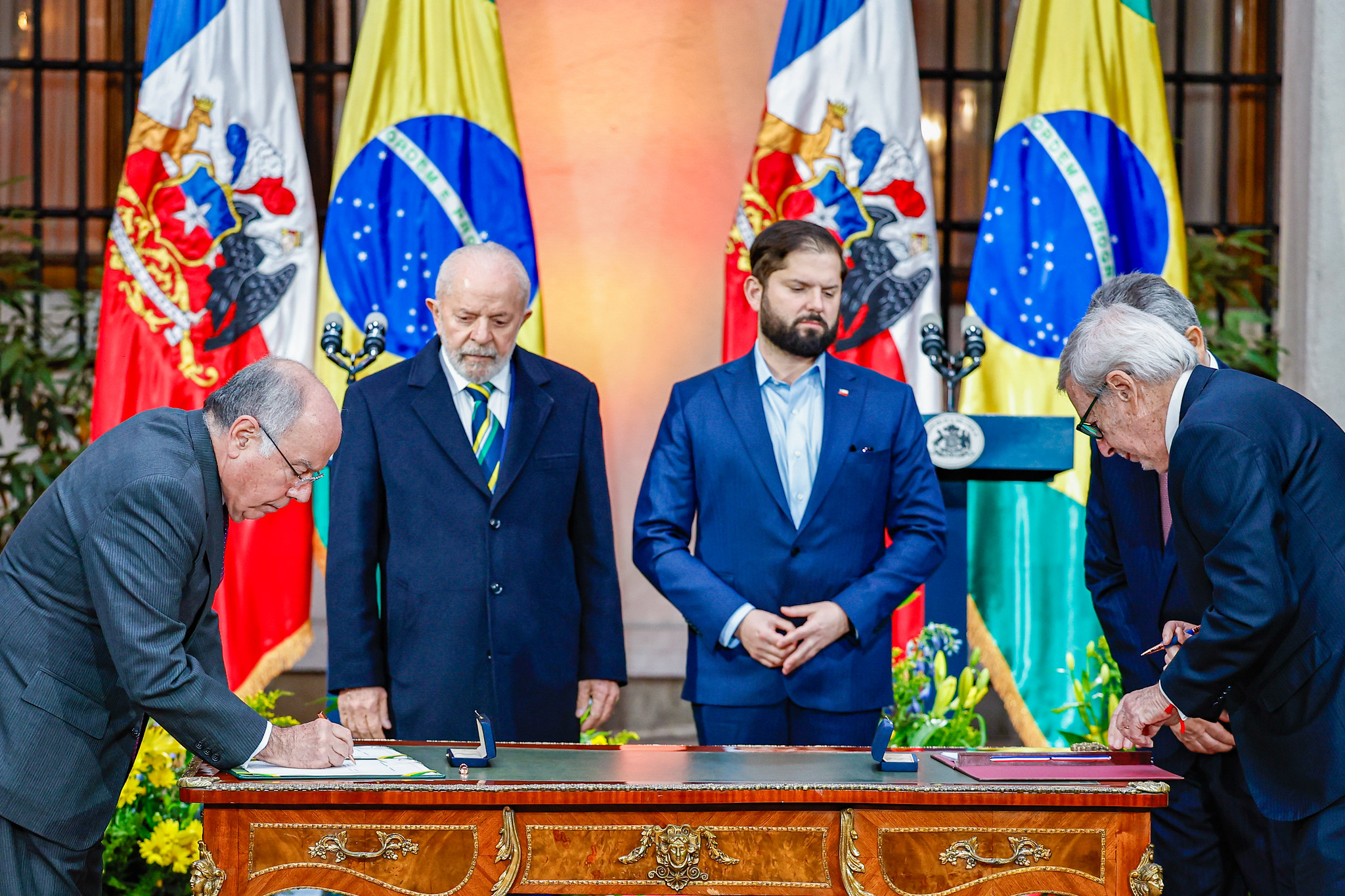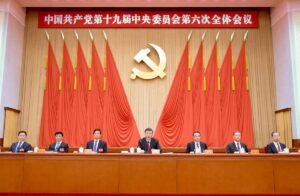
Published 08/06/2024 07:40
In a speech made in the Chilean capital, Brazilian President Luiz Inácio Lula da Silva encouraged integration among South American countries, a process he has advocated since his first presidential term. The statement was made after a private meeting with Chilean President Gabriel Boric, who chose not to comment on the Venezuelan presidential election.
Lula took 14 ministers of state to the capital of Chile to, in the president’s words, “inaugurate a new era” in relations with the neighboring country. “What we want is to build a full relationship, where there is no doubt, where any minor disagreement cannot harm the important agreements and the bigger things that we have to do,” he said during a speech to the press.
In his speech, Lula reinforced the importance of Latin American unity: “Brazil and Chile are committed to working together to build a more just and supportive world. As the great Pablo Neruda said in his novel, our main stars are struggle and hope. But there are no solitary struggles or hopes.”
Lula encouraged integration among South American countries, a process he has advocated since his first presidential term. “When I became president, I returned with a great desire to recreate, together with our people, this political awareness about the need to form an organized structure for the integration of South America. We cannot continue to turn our backs. We must protect, research, and investigate everything we can do together. We must seek formulas, study our similarities, and make this dream of a united Latin America come true. We cannot turn our backs on each other,” concluded the Brazilian president.
Bilateral agreements
Lula and Boric discussed the need for cooperation to address climate disasters, such as the recent floods in Rio Grande do Sul. Brazil’s Minister of Mines and Energy, Alexandre Silveira, who is part of Lula’s delegation, signed a letter of intent with the Chilean government for cooperation in the mining sector and a joint declaration creating a working group on sustainable aviation fuels.
During his speech, Lula also addressed the rise in organized crime and climate challenges in the region: “The challenges posed by natural disasters and organized crime are affecting our countries. The 2023 fires in Chile and the floods in southern Brazil have challenged climate change denialism and reinforced the need for cooperation between us. The Chilean proposal to establish a regional disaster response mechanism has our support and backing. Without collaboration, it is not possible to defeat crime. Today we signed an extradition treaty and instructed our teams to expand their actions.”
The president’s official visit to Santiago served to diversify trade with Chile. Brazil is currently the third largest supplier to Chile, with a turnover of over US$12 billion, which represents 11% of the neighboring country’s market. Lula and Boric signed 19 bilateral agreements and formalized cooperation programs.
“Today we signed an extradition treaty and instructed our teams to expand intelligence actions and joint operations. Integration means connection. It was the increase in the number of flights that allowed the flow of tourists between our countries to almost double last year. With the tourism work plan we signed today, Chile has everything it needs to consolidate itself as one of the most important destinations sought after by Brazilians,” said Lula.
In consular matters, the countries concluded the reciprocal recognition of driver’s licenses. In trade, the presidents of Brazil and Chile signed an addendum to the Memorandum of Understanding (ME) on the certification of organic products.
“South American integration is a reality that makes a difference in people’s lives, as demonstrated by the agreement to waive roaming charges that we signed last year and the agreement on reciprocal recognition of driver’s licenses that we signed today,” explained Lula.
Lula reinforced his desire to carry out projects that cross the continent to transport products to ports in the Atlantic and Pacific oceans. Boric also expressed his support for infrastructure investments. Both discussed the Bioceanic Corridor – a project in which Brazil, Chile, Argentina and Paraguay are partners. It will integrate the infrastructure of the South American continent, connecting the Center-West of Brazil to the ports in northern Chile. According to the Ministry of Foreign Affairs (MRE), it will be completed soon.
Political dialogue for peace in Venezuela
The controversy surrounding the Venezuelan election, fueled by international organizations, represents a new challenge for the regional integration process. Lula defended the need for dialogue between the government and the opposition in search of an understanding in the Venezuelan electoral process. Venezuelan President Nicolás Maduro, in power since 2013, was considered reelected by official bodies – with almost 52% of the votes. However, the opposition and foreign organizations claim that there was fraud in the election. There is an expectation surrounding the release of the electoral records.
In his comments, Lula highlighted the importance of a transparent process: “I exposed [em conversa com Boric] “The initiatives I have undertaken with Presidents Gustavo Petro (Colombia) and Lopez Obrador (Mexico) regarding the political process in Venezuela. Respect for tolerance and respect for popular sovereignty is what drives us to defend the transparency of the results. The commitment to peace is what leads us to call on the parties to dialogue and promote understanding between the government and the opposition,” Lula said in a statement to the press after the private conversation with Boric.
Gabriel Boric, in turn, had already expressed his position against the result in recent days, but preferred not to discuss the matter publicly during the meeting with Lula. Boric did not recognize Maduro’s victory, resulting in the expulsion of the Chilean diplomatic corps by the Chavista regime. Lula, however, asked for patience, demanding the presentation of the electoral records before declaring whether the election was fraudulent or legitimate.
Lula also highlighted the importance of Brazil’s relationship with Chile and lamented the Brazilian military dictatorship’s support for the military coup that ended Salvador Allende’s government in 1973, calling it a “sad stain” on Brazilian history.
Source: vermelho.org.br

